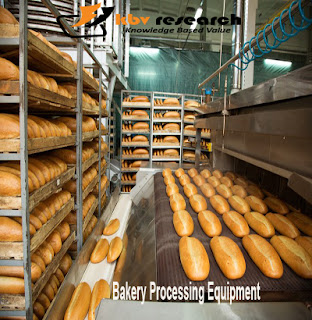Revolutionizing Education: The Power of Adaptive Learning
In the digital age, traditional education models are undergoing a profound transformation, and at the forefront of this revolution is Adaptive Learning. This article delves into the intricacies of Adaptive Learning, exploring its impact on personalized education, student engagement, and the future of learning.
Understanding Adaptive Learning
The Essence of Adaptability in Education
At its core, Adaptive Learning is an innovative educational
approach that tailors the learning experience to the unique needs and abilities
of each learner. Unlike traditional one-size-fits-all methods, Adaptive
Learning leverages technology to dynamically adjust the pace, content, and
delivery of educational material, ensuring a customized learning journey for
every student.
The Role of Technology in Adaptive Learning
Central to the success of Adaptive Learning
is the integration of cutting-edge technology. Smart algorithms, data
analytics, and artificial intelligence work collaboratively to analyze
individual student performance, identify learning patterns, and deliver
personalized content. This real-time adaptation not only optimizes
comprehension but also enhances the overall learning experience.
Advantages of Adaptive Learning
Personalization Leads to Mastery
One of the primary advantages of Adaptive Learning is its
ability to personalize the learning process. Students engage with material at
their own pace, receive targeted feedback, and can revisit challenging concepts
until mastery is achieved. This personalized approach fosters a deeper
understanding of subjects and promotes long-term retention.
Catering to Diverse Learning Styles
Every student possesses a unique learning style, and
Adaptive Learning recognizes and accommodates this diversity. Whether a student
is a visual learner, an auditory learner, or thrives in a hands-on environment,
Adaptive Learning platforms can adapt content delivery to suit individual
preferences, creating an inclusive and effective learning environment.
The Impact on Student Engagement
Fostering Active Participation
Adaptive Learning transforms students from passive
recipients of information to active participants in their educational journey.
Through interactive exercises, gamification elements, and dynamic content,
students are engaged in the learning process, making education a more enjoyable
and immersive experience.
Motivation Through Immediate Feedback
Timely and constructive feedback is a cornerstone of
Adaptive Learning. Students receive instant feedback on their performance,
allowing them to track their progress, identify areas for improvement, and
celebrate successes. This continuous feedback loop serves as a powerful
motivator, instilling a sense of achievement and encouraging a positive
attitude towards learning.
Fostering Student Engagement
Engagement is a cornerstone of effective learning. Adaptive
Learning platforms are designed to capture and maintain learners' interest by
offering interactive content, gamified elements, and challenges tailored to
individual proficiency levels. This heightened engagement contributes to a
positive learning experience, motivating learners to actively participate in
their educational journey.
Bridging Learning Gaps
Adaptive Learning serves as a bridge across learning gaps,
addressing disparities in comprehension and knowledge retention. By providing
targeted support and challenges, Adaptive Learning ensures that learners
progress at a pace aligned with their abilities. This personalized approach
minimizes the risk of learners falling behind or feeling disengaged.
Implementation in Various Educational Levels
Adaptive Learning in K-12 Education
In primary and secondary education, Adaptive Learning is
making waves by catering to individual student needs in crowded classrooms.
From customizing lesson plans to providing additional support for struggling
students, Adaptive Learning is reshaping the traditional educational landscape,
creating a more student-centric approach.
Adaptive Learning in Higher Education
In higher education, Adaptive Learning is revolutionizing
how complex subjects are taught. From science and mathematics to humanities and
social sciences, Adaptive Learning platforms provide university students with a
personalized learning path, fostering a deeper understanding of their chosen
fields.
Intelligent Tutoring Systems (ITS)
Intelligent Tutoring Systems play a pivotal role in Adaptive
Learning by providing virtual guidance and support. These systems use
artificial intelligence algorithms to assess learner performance, identify
areas of difficulty, and offer targeted interventions. ITS adapts its tutoring
strategies based on the learner's responses, creating a responsive and
interactive learning environment.
Personalized Learning Paths
Adaptive Learning platforms create personalized learning
paths, allowing learners to navigate through content at their own pace. These
paths are dynamically adjusted based on the learner's responses and mastery of
concepts.
Challenges and Considerations
The Need for Robust Infrastructure
Implementing Adaptive Learning requires a robust
technological infrastructure, including reliable internet connectivity, access
to devices, and secure platforms. Addressing these infrastructure challenges is
crucial to ensuring equitable access to Adaptive Learning across diverse
educational settings.
Balancing Technology with Human Touch
While technology is a powerful enabler, there is an ongoing
debate about striking the right balance between digital interaction and human
engagement in education. Adaptive Learning must complement, not replace, the
valuable guidance and mentorship provided by educators.
Overcoming Implementation Barriers
While the Adaptive Learning market is on the rise,
challenges in implementation persist. Educational institutions face hurdles
related to infrastructure, faculty training, and adapting to a new pedagogical
approach. Overcoming these barriers requires a strategic and collaborative
effort involving educators, administrators, and technology providers.
The Future Landscape of Learning
Lifelong Learning and Professional Development
As the workforce evolves, Adaptive Learning is poised to
play a pivotal role in lifelong learning and professional development.
Individuals seeking to acquire new skills or enhance existing ones can benefit
from tailored educational experiences that cater to their specific career
goals.
Global Accessibility and Inclusivity
Adaptive Learning has the potential to bridge educational
gaps globally. By providing adaptive content in multiple languages and
addressing diverse learning needs, it can contribute to a more inclusive and
accessible educational landscape for learners around the world.
Future Integration of Adaptive Learning
Looking ahead, the integration of Adaptive Learning is
expected to become more seamless and pervasive. As technology continues to
advance, we can anticipate enhanced AI-driven adaptive systems, immersive
learning experiences, and increased interoperability with other educational
technologies. The future holds exciting possibilities for a more interconnected
and adaptive educational landscape.
Conclusion
Adaptive Learning stands as a beacon of educational
innovation, reshaping how we approach teaching and learning in the 21st
century. From personalized learning paths to enhanced student engagement, its
impact is far-reaching.




Comments
Post a Comment